Christopher Patterson's Blog, page 5
May 12, 2016
Goodreads Giveaway
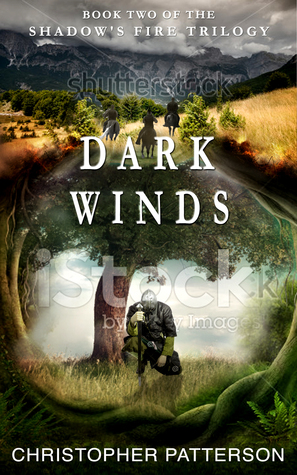
Dark Winds
by Christopher Patterson
Giveaway ends May 31, 2016.
See the giveaway details
at Goodreads.
Enter Giveaway
May 9, 2016
A Chance Beginning only $.99
https://www.amazon.com/Chance-Beginni...
A Chance Beginning
Christopher Patterson
March 9, 2016
Three Books I Must Have on a Deserted Island
For what its worth, here are the three books that I don’t think I could live without, the three books that I absolutely must have if I ever get deserted on an island and have to live there for the rest of my life. I would like to say that these are not necessarily in order of importance.
1.The Hobbit. This is my favorite fictional book. I first read The Hobbit when I was in sixth grade. The librarian at my elementary school had to special order it for me, and I can still remember sitting down at my desk and looking at that yellow cover with the picture of Smaug lying atop this huge mound of treasure. The picture wasn’t all that great, but my dad and uncle had told me about The Hobbit, and I had watched the cartoon I don’t know how many times. I just sat there, imagining the mysteries and adventure and excitement that lay behind that cover. And that was it. I was sold out to fantasy in that moment. Those first lines, the explanation of a Hobbit hole, the introduction of a company of dwarves led by some mysterious wizard—BOOM! Done. Now, I have criticized Tolkien’s writing as I’ve gotten older, and my tastes have changed, but The Hobbit has come out on top. So if I couldn’t get my hands on any other piece of fantasy fiction for the rest of my life, this would have to be the one I could read over and over again without losing my mind.
2.The King Raven Trilogy. I read this trilogy (I know not technically one book but you can buy them as one book, so I’m counting them as one book) not too long ago. It was my first endeavor into the works of Stephen Lawhead and I was pleasantry surprised. I picked up Lawhead because of a suggestion. He is a primarily fantasy author—although he does historical fiction and historical fantasy as well—who writes with strong Christian undertones. I try to weave some of my faith in my own writing, so I thought it would be good to read other authors who do the same. I was very disappointed with most. Of course, I am very disappointed with much of what gets published right now. It seems that there are always three or four shape-shifter, romance, ménage-a-triose books in the top twenty of Amazon. They’re terribly written and simply satisfy some primal sense that some readers want out there. Much of the Christian fiction world—very similar to the Christian music world—seems to turn a blind eye to bad writing simply because it is a Christian novel. I don’t think that is right. Regardless of the topic, I feel like good writing should be good writing, and good music should be good music. My point being, I picked up The King Raven Trilogy with great trepidation, already having read some pretty awful Christian fiction, and found something that I quickly fell in love with. It is a tale of Robin Hood, but told a little differently. One of the things I love about this tale is its not a tale of Saxons versus Normans, but Welsh versus Normans—a very different spin. Nottingham isn’t even in the story, and it weaves English mysticism and myth into a very historically accurate fictional retelling of the oppressive Norman invasion of England and the ensuing results. In my opinion, historical fantasy fiction at its best.
3.Okay, so this may seem campy for some, sacrilegious for others, but my third book would be the Bible. My desire is not to get preachy here, not at all, but I am a Christian and, even though I do not open up the pages of my Bible (or the pages of my Bible app) as much as I want to or should, the Word of God has been a mainstay throughout my life and, no matter what I am going through, I can always look to the Word for advice, guidance, solace, comfort, etc. I believe that faith is important. I know that theologies and denominations and styles of worship can get in the way, and I know for a lot of people faith is a very personal thing, but when I want to understand who God is and why He is doing something in my life, it is His Word that I have to turn to. In fact, whenever I get frustrated with all those things, those extrinsic things that really end up seeming so inconsequential, I can turn to the Bible and get a true bearing and understanding of my faith, my faith community, the faith of my family. And, to be honest, the Bible has some of those elements that I just absolutely love in a book, whether its fiction or non-fiction. To me, it’s very believable. It has tales (that are true in my opinion) of mystery, intrigue, romance, horror, adventure. It’s got guys wielding swords and spears and wearing armor. Can’t go wrong with that. And, of course, at the end of the day, it is a statement of who I am.
So, ladies and gentlemen, readers of fiction, fantasy, adventure, and everything else, these are the three books I would want with me if I were stranded on an island. I will be completely honest and tell you, part of me wanted to put my own books in the list. Not because I think my books are amazing, but because I figure it would be a great opportunity to perfect my own stories. With that, I bid you adieu until next time. Make sure you check out my Author’s page at Amazon and until next time, HAPPY READING!!!
A Chance Beginning
Christopher Patterson
March 7, 2016
Two Food Items I Cannot Possibly Live Without
Once again, here is a blog posting that really has nothing to do with writing, reading, fantasy, adventure, fiction. Really, it has nothing to do about anything—except for food. Not only does food keep us alive, but food is amazing, as evident by my expanding waistline. It is delicious. It defines our culture. It speaks to who we are, what we like, our interests. Food can even tell other people how adventurous we are, where we’ve been, what our preferences are. This then, much like our “What three books would you take with you to a deserted island?” is much like those many childhood what if games we all played. My favorite foods, the two foods that I cannot live without, truly define me. But they are not just about my taste preferences. They speak to my childhood. They speak to my upbringing. They speak to my likes and dislikes.
My two foods—Eggs and Cottage Cheese.
Okay, before you gag at my choices, let me explain why these are my choices.

Eggs – first of all, eggs are a super food. They are high in protein. They are high in good cholesterol. They are high in calories, so in a situation where calories are hard to come by, they would be a great source of energy. Unfortunately, eggs have gotten a bad rap over the last three decades. In fact, they whole, low fat dieting craze has demonized eggs, falsely. Scientific studies now show that, in moderation of course, eggs can be a very important part of a person’s diet. Despite all the scientific evidence, eggs were a very important part of my diet. I grew up a vegetarian. Being a vegetarian, I didn’t have very many ways of getting protein. My mom wasn’t a huge lover of eggs, and she is fairly lactose intolerant, so dairy wasn’t readily available in my house. My mom turned to soy based products, veggie dogs, veggie burgers, tofu, etc. for our protein. My grandmother—my dad’s mom—grew up on a farm. She was a meat and potatoes kind of woman. Tofu and veggie dogs were not her thing. So my protein staple at my grandmother’s house was cheese and eggs.
When I started lifting a lot, competing in powerlifting and bodybuilding, eggs became a great source of protein, especially for those cutting periods. Even during wrestling, when I was trying to maintain a certain weight, hard boiled eggs were a staple of my diet. Two or three hardboiled eggs helped curb some hunger, gave me some energy, and didn’t pack on a bunch of weight.

Cottage Cheese – So many people think cottage cheese is disgusting. Its rotten cheese. Curdled cheese. Old cheese. Its got a weird texture. Its watery. But, much like eggs, it’s a super food. Its high in calories, high in protein, and, even though it’s a little higher in saturated fat, the fat in cottage cheese is not completely bad for you. Much like eggs, also, it was a main source of protein for me when I was younger.
Like eggs, when I started lifting heavy, cottage cheese, at 15 grams of protein per half cup, became a ready source of protein, and on the days when I could stomach low sodium, low or non fat cottage cheese, it was fairly low calorie as well.

Why these two together then? Well—and this may sound super gross for most of you—my grandma used to mix my eggs with cottage cheese. The cottage cheese cooled my eggs down quickly and I, still to this day, typically mix my eggs with cottage cheese. It’s amazing. Gross? Maybe. But growing up a vegetarian in the 80’s, when being vegetarian wasn’t very popular and we didn’t have all the meat-free foods we have today, I got used to weird textures.
So, there you have it. A relatively short post about food, my two favorite foods. Every time I eat eggs and cottage cheese, I am reminded of my grandmother and it makes me smile, and makes my taste buds love me.
Thank you for reading my blog. Check out my Author Page at Amazon and as always, HAPPY READING!!!
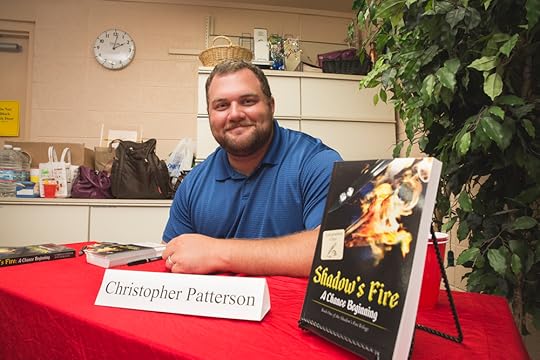
Three Books I Must Have on a Deserted Island

When you’re younger, you always ask your friends things like, “If you were on an island and could only have two foods for the rest of your life, what would they be?” or “What two friends would you want with you on an island in the middle of the ocean?” as if that’s not a completely loaded question. I think those are fun to think about. In a way, deep down inside, it makes us organize priorities and importance. That might sound a little too deep for silly, childhood questions, but have you ever thought about what three foods you absolutely couldn’t live without. Well, have you ever thought about what three books you absolutely couldn’t live without? Even as an author and an avid reader, I don’t know if I have ever truly thought of that question. I have certainly thought of my favorite book. And I would have to say, even though my favorite book is The Hobbit, it has changed several times, over time. But, what three books couldn’t you live without. Hmmmm.
For what its worth, here are the three books that I don’t think I could live without, the three books that I absolutely must have if I ever get deserted on an island and have to live there for the rest of my life. I would like to say that these are not necessarily in order of importance.
The Hobbit. This is my favorite fictional book. I first read The Hobbit when I was in sixth grade. The librarian at my elementary school had to special order it for me, and I can still remember sitting down at my desk and looking at that yellow cover with the picture of Smaug lying atop this huge mound of treasure. The picture wasn’t all that great, but my dad and uncle had told me about The Hobbit, and I had watched the cartoon I don’t know how many times. I just sat there, imagining the mysteries and adventure and excitement that lay behind that cover. And that was it. I was sold out to fantasy in that moment. Those first lines, the explanation of a Hobbit hole, the introduction of a company of dwarves led by some mysterious wizard—BOOM! Done. Now, I have criticized Tolkien’s writing as I’ve gotten older, and my tastes have changed, but The Hobbit has come out on top. So if I couldn’t get my hands on any other piece of fantasy fiction for the rest of my life, this would have to be the one I could read over and over again without losing my mind.
The King Raven Trilogy. I read this trilogy (I know not technically one book but you can buy them as one book, so I’m counting them as one book) not too long ago. It was my first endeavor into the works of Stephen Lawhead and I was pleasantry surprised. I picked up Lawhead because of a suggestion. He is a primarily fantasy author—although he does historical fiction and historical fantasy as well—who writes with strong Christian undertones. I try to weave some of my faith in my own writing, so I thought it would be good to read other authors who do the same. I was very disappointed with most. Of course, I am very disappointed with much of what gets published right now. It seems that there are always three or four shape-shifter, romance, ménage-a-triose books in the top twenty of Amazon. They’re terribly written and simply satisfy some primal sense that some readers want out there. Much of the Christian fiction world—very similar to the Christian music world—seems to turn a blind eye to bad writing simply because it is a Christian novel. I don’t think that is right. Regardless of the topic, I feel like good writing should be good writing, and good music should be good music. My point being, I picked up The King Raven Trilogy with great trepidation, already having read some pretty awful Christian fiction, and found something that I quickly fell in love with. It is a tale of Robin Hood, but told a little differently. One of the things I love about this tale is its not a tale of Saxons versus Normans, but Welsh versus Normans—a very different spin. Nottingham isn’t even in the story, and it weaves English mysticism and myth into a very historically accurate fictional retelling of the oppressive Norman invasion of England and the ensuing results. In my opinion, historical fantasy fiction at its best.
Okay, so this may seem campy for some, sacrilegious for others, but my third book would be the Bible. My desire is not to get preachy here, not at all, but I am a Christian and, even though I do not open up the pages of my Bible (or the pages of my Bible app) as much as I want to or should, the Word of God has been a mainstay throughout my life and, no matter what I am going through, I can always look to the Word for advice, guidance, solace, comfort, etc. I believe that faith is important. I know that theologies and denominations and styles of worship can get in the way, and I know for a lot of people faith is a very personal thing, but when I want to understand who God is and why He is doing something in my life, it is His Word that I have to turn to. In fact, whenever I get frustrated with all those things, those extrinsic things that really end up seeming so inconsequential, I can turn to the Bible and get a true bearing and understanding of my faith, my faith community, the faith of my family. And, to be honest, the Bible has some of those elements that I just absolutely love in a book, whether its fiction or non-fiction. To me, it’s very believable. It has tales (that are true in my opinion) of mystery, intrigue, romance, horror, adventure. It’s got guys wielding swords and spears and wearing armor. Can’t go wrong with that. And, of course, at the end of the day, it is a statement of who I am.
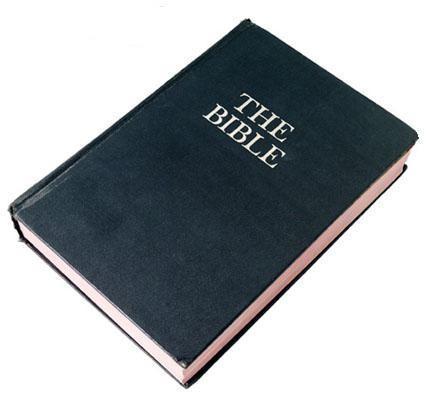
So, ladies and gentlemen, readers of fiction, fantasy, adventure, and everything else, these are the three books I would want with me if I were stranded on an island. I will be completely honest and tell you, part of me wanted to put my own books in the list. Not because I think my books are amazing, but because I figure it would be a great opportunity to perfect my own stories. With that, I bid you adieu until next time. Make sure you check out my Author’s page at Amazon and until next time, HAPPY READING!!!
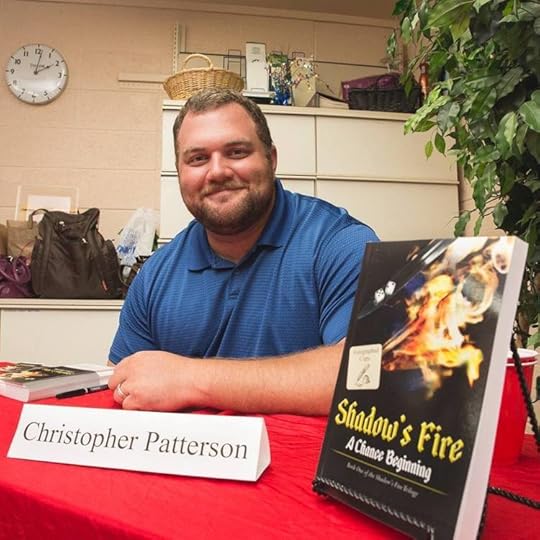
Four Things I Love About My Favorite Book
There are four reasons why The Hobbit has stood up against all these other great masterpieces, four reasons as to why The Hobbit stands out to me as one of the best, most influential, and most prolific novels of all time.
1. The Hobbit started a whole genre and influenced thousands of books. Certainly, fantasy fiction has seen some amazing authors after J.R.R. Tolkien. And within just a few generations, we have seen the creations of sub-genres like Dark Fantasy, Epic Fantasy, Urban Fantasy, etc. and amazing authors like Jordan, Sanderson, Martin, and Salvatore. These genres were created by men and women who were just as innovative as Tolkien, but in my opinion, it is Tolkien who gave them the start, gave them the platform with which to create their masterpieces. Every fantasy book that I read has some relationship to Tolkien and The Hobbit. Some of these similarities are very clear—and sometimes a little too similar—and some of these similarities are obscure, but I believe if you were to sit down and read every fantasy novel written, you could draw lines of influence to The Hobbit. This is why The Hobbit is the best. Every time I read a fantasy novel, or even an adventure novel, science fiction novel, or mystery novel, a part of me always thinks about The Hobbit.
2. Tolkien crossed genre boundaries with The Hobbit. I remember going through college and my Creative Writing program. Almost every single person, when they found out you liked any sort of genre fiction, looked at you like you were some second class citizen. I blame most of this on academia. Schools and universities are teaching young men and women in droves a lot of things and theories that are bogus and weird and just simply contrary to what we experience in the world outside of education, but one of those things that is closely related to us authors, writers, and readers, is that the only legitimate fiction genre is mainstream literary fiction, the kind of stuff you might find in the main aisle at Barnes and Noble, in the New Yorker, or in a coffee shop being discussed by espresso sipping, early twenties intellectuals who smoke e-cigarettes and have discovered the meaning of life even though they’ve never paid for a single bill or have had a single, meaningful responsibility other than school. Besides the fact that most schools teach their students that genre fiction is lesser, worse, poorly written, and meaningless, it is hard for someone who is into a particular genre to appreciate another genre. In my experience, that happens when an author crosses genre boundaries—and Tolkien did that. I have met people who love romance, mystery, adventure, sci-fi, literary, poetry, and non-fiction who have all at least appreciated The Hobbit. Whether its Tolkien’s world building skills, or his prose, or his level of description, or his ability to create analogy, or even his insane aptitude at creating not one, not two, but multiple imaginary languages—all based off of a dead language in Old English—readers appreciate Tolkien’s writing. I would be lying if I said I didn’t have issues with some of Tolkien’s story, or the Lord of the Rings trilogy. I can’t stand The Simarillion. But issues or not, and genre or not, most people appreciate what Tolkien did in crossing the genre boundaries with The Hobbit. There’s mystery, adventure, political intrigue, racial tension, a resistance to political and social norms, poetry, horror, and any number of other genres all wrapped into this singular fantasy novel that sparked a legacy of writing.
3. It’s a great piece of writing with great prose and great imagery and fantastic description. Tolkien is a good writer. I’m sure there are people out there who don’t like Tolkien or his work, but I think it would be hard to dispute that he is a good writer. Even at a young age, I like picking up a popcorn fantasy novel and slamming through a decently (maybe just ok) written book in a few days—maybe a week—and getting some good adventure, good fight scenes, and a satisfactory story. If nothing else, they always gave me great ideas for D&D adventures. But there is something to be said about great writing, in any genre, but especially fantasy. When you feel like you are living the adventure, man, what a great feeling. That’s what Tolkien does with The Hobbit. It’s not just some campy, corny fantasy novel that takes a few days to read and then you put it down to never read it again. This is a book that takes time. You find yourself rereading passages. Not because they were hard to understand, but because you know there is deeper meaning there. You know that it takes a few times to truly understand what Tolkien was saying. What was he alluding to? What is he foreshadowing? Or you come to this paragraph or two of excellent prose and you read it three times just because it is enjoyable to do so. His attention to detail—and I know some complain about it—gives me the ability to smell the smells, see the sights, hear the sounds, feel the tangibles and wonder the intangibles. Certainly, people have done the same thing, and maybe even people have done a better job, but picking up from reasons 1 and 2, and transitioning into reason 4, Tolkien was one of the first to do it with a genre that many cannot do it with, and in such a way that most who wouldn’t dare pick up a fantasy novel will pick up his.
4. The Hobbit was one of the first, full length novels I ever read that was written for adults. I was only eleven or twelve when I first read The Hobbit. And although I have read it four or five times—I know some people don’t have enough toes and fingers to count how many times they’ve read The Hobbit—I always go back to the fact that it was my first. Not to get really weird here, but I think it’s kind of like our first love, that first person we ever, truly fell in love with. We may not actually love them anymore—I know I am deeply in love with my wife, Kellie, and wouldn’t trade her or our family for anything—but they will always have a special place in your heart. I think, in a way, that is what The Hobbit is for me. I grew up playing fantasy games (D&D), and watching anime, and watching fantasy and science fiction movies and cartoons, but when I picked up The Hobbit for the first time, it all came together for me. I could see every character I had ever read or watched come to life on the pages of that book. I can still remember looking at the cover—it was yellow and it had a picture of Bilbo sneaking into Smaug’s layer—at my desk. We had just come back from the library and I had been bugging our librarian about the book. She said they didn’t have it, that it was a little too high level, but that she would special order for me. And she did. I get goose pimples just sitting here and writing about it. That was it. That was the story that made my love for fantasy and sci-fi real. It was amazing. I could see Hobbiton, and the dragon Smaug, and the dwarves, and Gandalf. I had seen them before. I had imagined them. And here they were. Again, as I get older, I find little issues with the novel—character issues, questions I never asked as a kid, plot flaws—but I will always go back to that moment, when I opened that book, and my love for fantasy came to life. After that, I watched The Hobbit cartoon, read The Hobbit comic book, and began reading other fantasy novels. And, man, when the movies came out, I seriously might have shed a few tears. I think, then, it also truly sparked my imagination. Believe me, I had a vivid imagination before that. But just reading what Tolkien wrote, and I really think understanding how revolutionary it was at the time, I really wanted to convey a story, a message, a picture inside my head to other people. I really do think that that was one of those moments when I knew I wanted to write. Of course, my parents, my Uncle Bob, my grandmother, all these people and more, encouraged me and my creativity, but I don’t know if I would have ever come to the conclusion that I want to write, come to the conclusion of, “Hey, I could do this too,” if I had never picked up my favorite book, J.R.R. Tolkien’s The Hobbit.
Thank you all for visiting my blog posting. I hope you enjoyed it. Check out my Author Page at Amazon and please feel free to peruse my website and, as always, HAPPY READING!!!
A Chance Beginning
Christopher Patterson
March 6, 2016
Four Things I Love About My Favorite Book
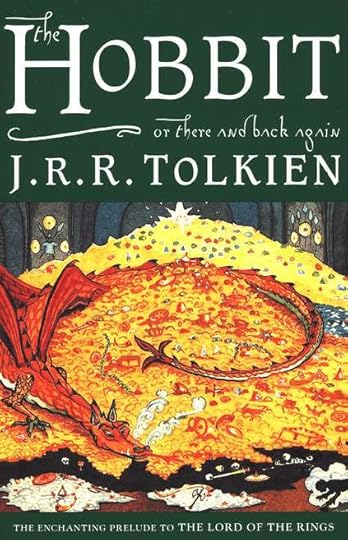
My favorite book, like so many of us who are avid readers, has changed over time. When I was younger, I would say any one of the Hardy Boys novels could be my favorite, or A Wrinkle in Time. That one was the first book I read with my mom. My dad then turned me onto The Wizard of Earthsea series by Ursula K. Le Guinn and, for a long while, that would have been my favorite. I finally read The Hobbit in sixth grade and JRR Tolkien’s classic quickly became my favorite; until, of course, I read The Lord of the Rings. I’ve read most of the books in the Forgotten Realms universe as well as most of the Harry Potter books. I am somewhat irritatedly awaiting the next book in George RR Martin’s Song of Ice and Fire—Winds of Winter—as I am all caught up with his quickly-becoming-classic series. I read Brent Weeks Night Angel Trilogy and was a fan for the most part. I love Stephen Lawhead’s work. His first series I read was the King Raven series, a historical fiction/fantasy series about Robin Hood. Very cool. I have also either read or listened to many of Tom Clancy’s Jack Ryan novels and Robert Ludlum’s books, listened to many of the early Star Wars novels (now mostly not accepted as a part of the Star Wars Universe), and have had an opportunity, through publishing my own book, to read other newer author’s works. After reading all these books—well, I should say reading and listening to all these books—my favorite of all time…man, that’s a hard thing to decide. But my favorite of all time has to be J.R.R. Tolkien’s The Hobbit.
There are four reasons why The Hobbit has stood up against all these other great masterpieces, four reasons as to why The Hobbit stands out to me as one of the best, most influential, and most prolific novels of all time.
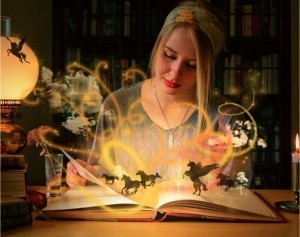
1. The Hobbit started a whole genre and influenced thousands of books. Certainly, fantasy fiction has seen some amazing authors after J.R.R. Tolkien. And within just a few generations, we have seen the creations of sub-genres like Dark Fantasy, Epic Fantasy, Urban Fantasy, etc. and amazing authors like Jordan, Sanderson, Martin, and Salvatore. These genres were created by men and women who were just as innovative as Tolkien, but in my opinion, it is Tolkien who gave them the start, gave them the platform with which to create their masterpieces. Every fantasy book that I read has some relationship to Tolkien and The Hobbit. Some of these similarities are very clear—and sometimes a little too similar—and some of these similarities are obscure, but I believe if you were to sit down and read every fantasy novel written, you could draw lines of influence to The Hobbit. This is why The Hobbit is the best. Every time I read a fantasy novel, or even an adventure novel, science fiction novel, or mystery novel, a part of me always thinks about The Hobbit.
2. Tolkien crossed genre boundaries with The Hobbit. I remember going through college and my Creative Writing program. Almost every single person, when they found out you liked any sort of genre fiction, looked at you like you were some second class citizen. I blame most of this on academia. Schools and universities are teaching young men and women in droves a lot of things and theories that are bogus and weird and just simply contrary to what we experience in the world outside of education, but one of those things that is closely related to us authors, writers, and readers, is that the only legitimate fiction genre is mainstream literary fiction, the kind of stuff you might find in the main aisle at Barnes and Noble, in the New Yorker, or in a coffee shop being discussed by espresso sipping, early twenties intellectuals who smoke e-cigarettes and have discovered the meaning of life even though they’ve never paid for a single bill or have had a single, meaningful responsibility other than school. Besides the fact that most schools teach their students that genre fiction is lesser, worse, poorly written, and meaningless, it is hard for someone who is into a particular genre to appreciate another genre. In my experience, that happens when an author crosses genre boundaries—and Tolkien did that. I have met people who love romance, mystery, adventure, sci-fi, literary, poetry, and non-fiction who have all at least appreciated The Hobbit. Whether its Tolkien’s world building skills, or his prose, or his level of description, or his ability to create analogy, or even his insane aptitude at creating not one, not two, but multiple imaginary languages—all based off of a dead language in Old English—readers appreciate Tolkien’s writing. I would be lying if I said I didn’t have issues with some of Tolkien’s story, or the Lord of the Rings trilogy. I can’t stand The Simarillion. But issues or not, and genre or not, most people appreciate what Tolkien did in crossing the genre boundaries with The Hobbit. There’s mystery, adventure, political intrigue, racial tension, a resistance to political and social norms, poetry, horror, and any number of other genres all wrapped into this singular fantasy novel that sparked a legacy of writing.
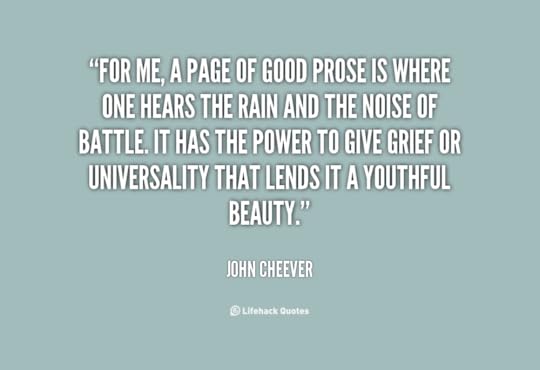
3. It’s a great piece of writing with great prose and great imagery and fantastic description. Tolkien is a good writer. I’m sure there are people out there who don’t like Tolkien or his work, but I think it would be hard to dispute that he is a good writer. Even at a young age, I like picking up a popcorn fantasy novel and slamming through a decently (maybe just ok) written book in a few days—maybe a week—and getting some good adventure, good fight scenes, and a satisfactory story. If nothing else, they always gave me great ideas for D&D adventures. But there is something to be said about great writing, in any genre, but especially fantasy. When you feel like you are living the adventure, man, what a great feeling. That’s what Tolkien does with The Hobbit. It’s not just some campy, corny fantasy novel that takes a few days to read and then you put it down to never read it again. This is a book that takes time. You find yourself rereading passages. Not because they were hard to understand, but because you know there is deeper meaning there. You know that it takes a few times to truly understand what Tolkien was saying. What was he alluding to? What is he foreshadowing? Or you come to this paragraph or two of excellent prose and you read it three times just because it is enjoyable to do so. His attention to detail—and I know some complain about it—gives me the ability to smell the smells, see the sights, hear the sounds, feel the tangibles and wonder the intangibles. Certainly, people have done the same thing, and maybe even people have done a better job, but picking up from reasons 1 and 2, and transitioning into reason 4, Tolkien was one of the first to do it with a genre that many cannot do it with, and in such a way that most who wouldn’t dare pick up a fantasy novel will pick up his.
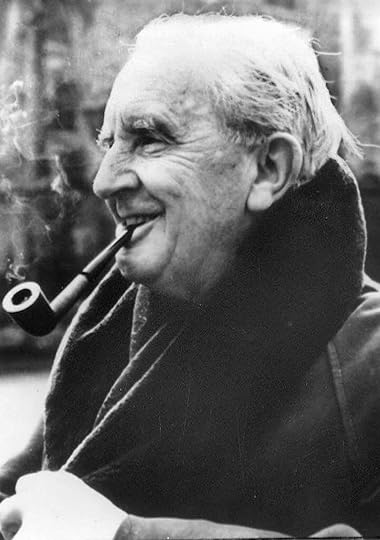
4. The Hobbit was one of the first, full length novels I ever read that was written for adults. I was only eleven or twelve when I first read The Hobbit. And although I have read it four or five times—I know some people don’t have enough toes and fingers to count how many times they’ve read The Hobbit—I always go back to the fact that it was my first. Not to get really weird here, but I think it’s kind of like our first love, that first person we ever, truly fell in love with. We may not actually love them anymore—I know I am deeply in love with my wife, Kellie, and wouldn’t trade her or our family for anything—but they will always have a special place in your heart. I think, in a way, that is what The Hobbit is for me. I grew up playing fantasy games (D&D), and watching anime, and watching fantasy and science fiction movies and cartoons, but when I picked up The Hobbit for the first time, it all came together for me. I could see every character I had ever read or watched come to life on the pages of that book. I can still remember looking at the cover—it was yellow and it had a picture of Bilbo sneaking into Smaug’s layer—at my desk. We had just come back from the library and I had been bugging our librarian about the book. She said they didn’t have it, that it was a little too high level, but that she would special order for me. And she did. I get goose pimples just sitting here and writing about it. That was it. That was the story that made my love for fantasy and sci-fi real. It was amazing. I could see Hobbiton, and the dragon Smaug, and the dwarves, and Gandalf. I had seen them before. I had imagined them. And here they were. Again, as I get older, I find little issues with the novel—character issues, questions I never asked as a kid, plot flaws—but I will always go back to that moment, when I opened that book, and my love for fantasy came to life. After that, I watched The Hobbit cartoon, read The Hobbit comic book, and began reading other fantasy novels. And, man, when the movies came out, I seriously might have shed a few tears. I think, then, it also truly sparked my imagination. Believe me, I had a vivid imagination before that. But just reading what Tolkien wrote, and I really think understanding how revolutionary it was at the time, I really wanted to convey a story, a message, a picture inside my head to other people. I really do think that that was one of those moments when I knew I wanted to write. Of course, my parents, my Uncle Bob, my grandmother, all these people and more, encouraged me and my creativity, but I don’t know if I would have ever come to the conclusion that I want to write, come to the conclusion of, “Hey, I could do this too,” if I had never picked up my favorite book, J.R.R. Tolkien’s The Hobbit.
Thank you all for visiting my blog posting. I hope you enjoyed it. Check out my Author Page at Amazon and please feel free to peruse my website and, as always, HAPPY READING!!!
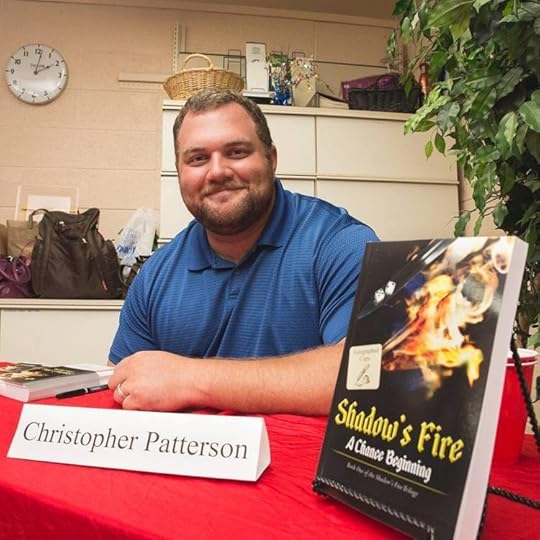
March 4, 2016
Five Things I Would Buy With A Million Dollars
What an author’s dream, right? Write enough, have a good enough book or series, have a great enough following to make a million on your craft? So if…wait, wait, wait, what’s this “if” stuff? When…there we go…when I make my first million, what will I do?
1.The first thing I am doing is paying off my home. I know—boring. Oh well. The thought of paying $800,000 for a $200,000 mortgage 30 years from just isn’t that appealing to me. So, there you go, I pay my house off, sink another $100,000 in improvements into our house, and have roughly $700,000 left over.
2.The second thing I do is take my wife to Europe—most notably, France and Italy. When my wife and I were first dating, she was saving up for a trip to Italy. She had everything planned. She had hotels and hostels. She had tours planned. And she was just a couple hundred dollars away from being able to afford it. Then, I got into a really bad accident and we decided to buy a house. Those to things completely drained my wife’s savings accounts and, thus, ruined her dream of traveling to Italy and see the amazing history and culture of Southern Europe. So, after paying off our home, I am taking my wife to Italy and France (and probably Greece) and we’re spending a good two to three weeks there in complete luxury. I figure I can take my wife to Southern Europe, fulfill her dream of going, take a bunch of time to write and get some awesome inspiration from my surroundings, and pretty much do whatever we want for about $100,000, so after taking my wife to Europe, I still have $600,000 left over.
3.Build my dream home gym. I love working out, has lived much of my life in the gym, competed in both power lifting and body building, and find more and more solace in lifting in my garage as opposed to going to a crowded gym where everyone is trying to show each other up, and hit on each other, and grunt, and slam weights, etc. I have decent equipment in my gym right now, but with $600,000 left over, money really isn’t an option. I would sink about $100,000 into my garage gym.
4.I have $500,000 left over, $400,000 of which I can play with. I’ll explain why only $400,000 in just a moment. I would use the rest for my family and friends. I would pay off the rest of my debt, put money into college funds for my kids, send my brother to school, pay off my mom and dad’s debt, and put a decent chunk of change away for the future. I might take some of that and revamp the wrestling room at the school I coach at. I’m not a materialistic guy. I like working, so I certainly wouldn’t stop working. I don’t luxury things. I don’t need luxury cars. I like my home. My clothes are good. I like living in Tucson, AZ. I just really want to live a worry free life. That means no debt.
5.Lastly, I take $100,000 and give it back. I give it to church. I know, some of you will read this and start thinking that churches are corrupt and why do we have pastors living in $10 million homes and spending insane amounts of money on trips and etc etc etc. I can’t speak to them and I can’t speak to their hearts. But I do trust God. He has requested 10% of our first fruits, and—even though I don’t give 10% all the time—I believe that’s what I should do. I believe my church would use that money for good, for spreading a message of hope and salvation, of peace and love. I would encourage everyone to give. You don’t have to be a Christian, or have a faith, to give and study after study shows that giving possessions and money away is actually good for your health.
There you go. That’s the five things I would do with $1,000,000. Its not very exciting, but it would fit me just fine. So, if anyone out there has a million dollars they want to give me, just let me know. Until then, Thank you and HAPPY READING!!!
Five Things I Would Buy With A Million Dollars
So, clearly this really has nothing to do with my writing, writing in general, being an author, being creative—really, it has nothing to do about anything. I just thought it would be fun to talk about having a ton of money (I don’t really know if one million dollars is a lot of money anymore) and what I would do with it. Firstly, let me say that I think it is crazy that the PowerBall reached $1 Billion. I think its even crazier that people went out and spent a bunch of money on tickets, hoping they would be the lucky one. Now, I don’t normally play the lottery, but I did drop $20 on some tickets and won like $4. But, anyways. I do hope to have $1 million someday. But I would like to do it the old fashioned American way—through hard work.
What an author’s dream, right? Write enough, have a good enough book or series, have a great enough following to make a million on your craft? So if…wait, wait, wait, what’s this “if” stuff? When…there we go…when I make my first million, what will I do?
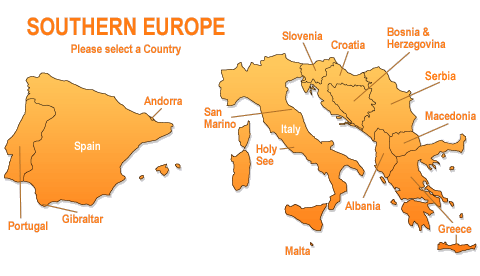

The first thing I am doing is paying off my home. I know—boring. Oh well. The thought of paying $800,000 for a $200,000 mortgage 30 years from just isn’t that appealing to me. So, there you go, I pay my house off, sink another $100,000 in improvements into our house, and have roughly $700,000 left over.
The second thing I do is take my wife to Europe—most notably, France and Italy. When my wife and I were first dating, she was saving up for a trip to Italy. She had everything planned. She had hotels and hostels. She had tours planned. And she was just a couple hundred dollars away from being able to afford it. Then, I got into a really bad accident and we decided to buy a house. Those to things completely drained my wife’s savings accounts and, thus, ruined her dream of traveling to Italy and see the amazing history and culture of Southern Europe. So, after paying off our home, I am taking my wife to Italy and France (and probably Greece) and we’re spending a good two to three weeks there in complete luxury. I figure I can take my wife to Southern Europe, fulfill her dream of going, take a bunch of time to write and get some awesome inspiration from my surroundings, and pretty much do whatever we want for about $100,000, so after taking my wife to Europe, I still have $600,000 left over.
Build my dream home gym. I love working out, has lived much of my life in the gym, competed in both power lifting and body building, and find more and more solace in lifting in my garage as opposed to going to a crowded gym where everyone is trying to show each other up, and hit on each other, and grunt, and slam weights, etc. I have decent equipment in my gym right now, but with $600,000 left over, money really isn’t an option. I would sink about $100,000 into my garage gym.
I have $500,000 left over, $400,000 of which I can play with. I’ll explain why only $400,000 in just a moment. I would use the rest for my family and friends. I would pay off the rest of my debt, put money into college funds for my kids, send my brother to school, pay off my mom and dad’s debt, and put a decent chunk of change away for the future. I might take some of that and revamp the wrestling room at the school I coach at. I’m not a materialistic guy. I like working, so I certainly wouldn’t stop working. I don’t luxury things. I don’t need luxury cars. I like my home. My clothes are good. I like living in Tucson, AZ. I just really want to live a worry free life. That means no debt.
Lastly, I take $100,000 and give it back. I give it to church. I know, some of you will read this and start thinking that churches are corrupt and why do we have pastors living in $10 million homes and spending insane amounts of money on trips and etc etc etc. I can’t speak to them and I can’t speak to their hearts. But I do trust God. He has requested 10% of our first fruits, and—even though I don’t give 10% all the time—I believe that’s what I should do. I believe my church would use that money for good, for spreading a message of hope and salvation, of peace and love. I would encourage everyone to give. You don’t have to be a Christian, or have a faith, to give and study after study shows that giving possessions and money away is actually good for your health.

There you go. That’s the five things I would do with $1,000,000. Its not very exciting, but it would fit me just fine. So, if anyone out there has a million dollars they want to give me, just let me know. Until then, Thank you and HAPPY READING!!!
The Five Things I Wish Fantasy Authors Would Stop Doing
However, there just seems to be a number of things fantasy authors - and this is probably true with mystery, romance, and political intrigue authors as well - continually do that places us in the realm of popcorn fiction, turns off readers, makes us seem like the nerds playing magic in the high school hallways (no offense to nerds or Magic the Gathering players) and irritates even me. So, here is my list of the five things I wish fantasy authors would stop doing.
1. Deus Ex Machina
What does this mean? It literally means god from the machine. This is the literary device that was commonly used by Greek and Roman playwrights to work the gods into their plays or to help their heroes solve seemingly unsolvable situations. So how is this applicable today? Don't get mad at me. I love Tolkien and I love Lord of the Rings, but one of the final scenes, when the Giant Eagles save Frodo and Sam from the impending doom of Mount Doom's wrath, that is a perfect example of Deus Ex Machina. They should've died. You know it. I know it. The whole world knows it. The fact is, Tolkien broke a lot of the literary rules that many authors today must live by - and he is still great. But as I continue to read fantasy novels, and as I continue to write fantasy novels, I begin to realize that many fantasy novels extract their heroes and save their protagonists from situations that are hopeless, all because of a spell the wizard forgot he had, or the magic sword the knight didn't realize he possessed, or the world bending acorn the ranger received as an elvish gift. I suppose the whole point to fantasy and science fiction is that these are tales that are beyond reality, and I am certainly not looking for extensive realism in my fantasy, but I do want some. As morbid as it sounds, I want main characters to die. I want them to face the same hardships I face, encounter the same trials and tribulations, work themselves out of bad situations the same way I would - only, with the help of magic or a dragon or a magic sword. But I don't want them to be miraculously saved. When Matrim Cauthon in the Wheel of Time series (spoiler alert) dies, I wanted him to stay dead. But Rand al'Thor, not realizing he had the power of Bane Fire, brings Matrim back. Again, I know some of this is going to occur in fantasy, and I know it occurs in my own writing, I just want less of it. I believe, with less Deus Ex Machina, fantasy would cross genre boundaries.
2. Names and Places that I either can't pronounce, or sound like the author was literally looking around his/her desk and putting random words together
Everyone who reads fantasy and science fiction knows what I mean. You come to that one name (and for the sake of not wanting to slam any particular author, I will leave specific examples out) and as you sound it out loud - "Pap-stap-uter-ex" - you realize that at that moment, at the moment the author needed that profound name, he happened to be sitting in front of his computer with a paperclip in his hand and a box of staples on his desk, and he thought by adding ex to the end of the name, it made it clever. So as Sir Papstaputerex goes through his adventures, all you can think about is, "You couldn't come up with anything better?" I know that these are make believe worlds, and I know that these are make believe people, but can't we be a little more creative? And how about names and places that I can pronounce? I read a book not too long ago, and the name of a people in the book was literally so long, it took up a whole line on a page, and the author even explained how other peoples shortened the name because it was so long. WHAT? It just seems to me that there is going to be a certain amount of popcorn involved in fantasy, which is ok and expected. But that popcorn level goes up as we have more and more inaudible, unpronounceable, wacky names and places.
3. Telling Not Showing
Early on in my writing "career," I got slammed on this concept a lot. I mean, a lot. So much so, that I really reconsidered whether or not I wanted to be an author. I mean, here I am, having these amazing, insanely awesome scenes in my head. How else am I suppose to explain these scenes or places or even people to my audience other than describing them it such great detail that it takes a total of three to four pages to just explain the way the sun rises over the mountains, or the way her hair flutters in the wind? Two amazing authors are so famously guilty of doing this that if they were fledgling writers today, they may have never made it. Of course, I am talking about Tolkien and Jordan. I love their work and view them as pioneers in Fantasy Fiction. However, it seems that too many modern fantasy authors have chosen to follow in these revolutionaries' exact footsteps. Times change, as do the requirements and expectations of industries, including writing. I want to experience people, scenes, and places through dialogue (which will be another pet peeve of mine) and action, fighting, smelling, seeing. I really feel like I am just being told a story when I pick up many fantasy novels. I want to smell the smells, hear the sounds, see the sights.
4. Bad Dialogue
What is it about Fantasy and Science Fiction that authors think its a license for superfluous language, hyperbolic speech, and just bad dialogue in general? I mean, really? I often wonder if authors think to themselves, "Would I really speak this way?" Again, the author typically isn't inputting themselves into the story. These are other-worldly people, in other-worldly places, dealing with other-worldly things. But, if I want people like me reading my books, I might want my characters to speak like me - or them. Here is just a quick example of what I am talking about. Mind you, I just came up with this.
"Ho there, comrade of the eastern hills where the sun shines warm and bright every day of this and every year," Ethgar Blue Beard of the Hakawakaluka Clan exclaimed with great admiration and mirth, his bluish-black beard floundering in the subtle, cool, crisp breeze of the Fourth Wind and his black eyes blazing like dark, endless coals burning on a freezing, moonless, starless night. (A homage to my previous two pet peeves).
"Ho there, fellow barbarian, master of the western steps, where the grass grows tall and strong, lord of the horse people and crusher of all who refuse to follow the great traditions of your people," Spik'a-Val'um'inius replied, his hair - as bright as the noonday sun - shining and casting out the ever growing shadows of a darkening world, his eyes meeting the dark intensity of Ethgar's with an icy coolness about them, one that might freeze those he looked upon if it were not for the warmth in his heart.
"Dost thou come with the good news that makes my heart race like the wild horses of my lands?" Ethgar asked, his well-muscled neck undulating with every word, presenting his arms wide open, in friendship as a long lost brother might meet his kin.
"Nay, nay," Spik'a-Val'um'inius replied. "My news is as dark as witch's brew in the dead of winter."
What the hell was just said? I wrote it and I don't even know what I just wrote. But this seems to be the norm for most fantasy novels. Why? That's a great question. I feel like most fantasy novelists think they have to be the next Shakespeare. But I don't think that is what people are looking for. I think they're looking for stories they can relate to and dialogue they can understand. We, as authors, need to think about how we speak and how we would respond to certain situations and realize that that would be the response of most people, and that's what they can relate to - and that is what they want to read.
5. What is the Motivation?
Lastly, I need motivation. What is motivating the main character to follow the kooky wizard that just barged into the pub talking about the end of the world and so-and-so being the savior, and they have to leave right now? I truly believe that a thousand years ago, or in some make believe land, or a thousand years from now, people would respond the same way people would respond today.
"Um, here, let me buy you a beer and I'll meet you out back in five minutes," while he takes off as fast as he can.
Or
"Get the hell outta here before I beat you and have you thrown in jail."
If everyone is happy and content, why would they change? Or, if everything is so hopeless, there is never a thought a breaking the chains of oppression, why would they change? I suppose this speaks to the epic nature of most fantasy, the overarching ideas and themes, but no matter how epic a fantasy novel is, it needs to have some real motivation. There needs to be conflict. There needs to be problems. Something needs to be amiss and something needs to convince the protagonist he or she needs to change, needs to go an adventure, needs to go with the crazy wizard.
I do believe that at some point, and possibly still, I am at fault for committing all of these writing sins. But as I try to move from being pigeon-holed to one genre to writing across genres, as most authors want, I try as hard as humanly possible to avoid these mistakes. Let me know what your pet peeves and frustrations are with novels and authors. Thanks and Happy Reading!
A Chance Beginning
Christopher Patterson



